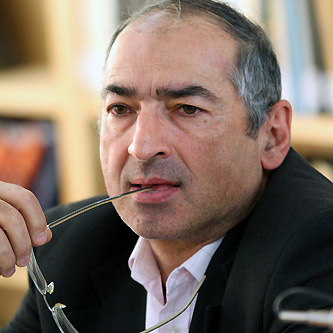Ahamdinejad and the New York Battleground

First, what is implied is that President Ahmadinejad showed that he is inclined to solve the problems that have arisen in Iran-US relations: he has at least tried to transmit a message to the Americans, that “if you are ready to act in this regard, I am ready to take a step forward.”
Second, what is directly stated is that he has made all of his efforts to attract the Western media and international attention. While if this attraction had been achieved by compromise and flexibility he would be faced with a harsh domestic reaction, in every one of his previous 6 visits he adopted very extreme positions instead of taking an “olive branch” in hand; he stressed that he wanted to change the global system, as he believed that the current global discipline is full of cruelty, exploitation, abuse, and so on. He stated that the world was in crisis and Muslim Iran was the only power capable of solving its problems. He also proposed an international management, the dissolution of Israel, and the falsehood of the Holocaust. He took these positions to be noticed in the international arena but also to be praised inside the country due to his insistence upon and defense of revolutionary positions.
Therefore, he did not intend to transmit this message only to Iranians, but also to Arabs, Muslims, Africans and the Third World’s mass population. He wanted to say that he is a revolutionary who has come to enforce a new discipline in the world. But, it seems that his advisors and those assisting him in decision-making and public speaking have given him the wrong guidance, misleading him to nowhere. It would have been interesting to adopt revolutionary discourse in the 60’s and 70’s, when Castro and Che Guevara were the myths of the masses, while now it is no longer acceptable in the world to adopt anti-West and –US discourse, and to announce that the West is corrupted and is exploiting the Third World. There is no praise for the one shouting the slogan of destruction of the West, the US and Israel, but there is for the one defending human rights, freedom and anti-authoritarian popular campaigns in the Third World. If today Erdogan is praised by public opinion from the beginning of the Arab Spring and the movements in the Arab world, it is because of the Turkish foreign policy that has backed the movements and supported the Palestinian people in the UN. Seemingly, the Turks now direct international public opinion, while Ahmadinejad and his colleagues do not know what discourse to adopt.

